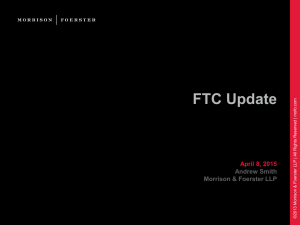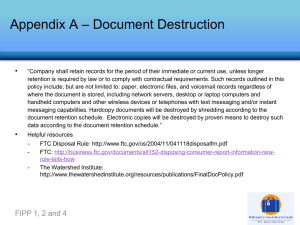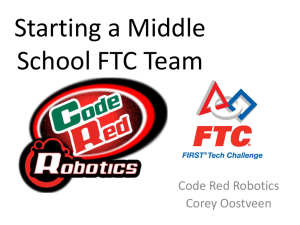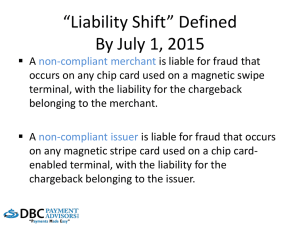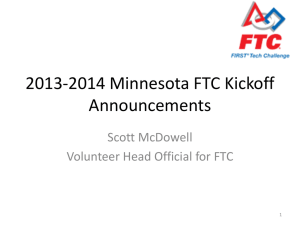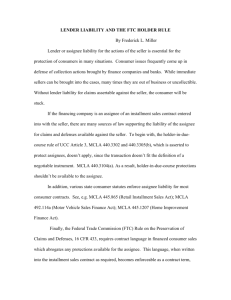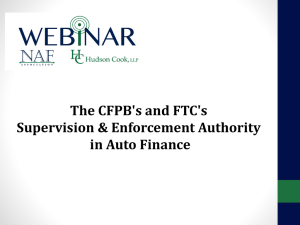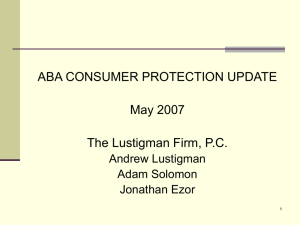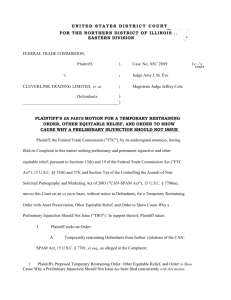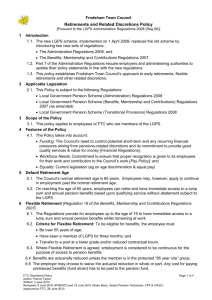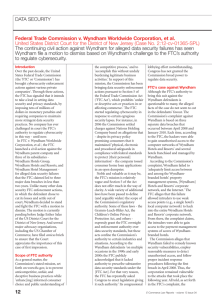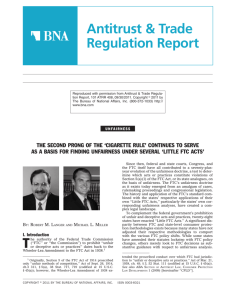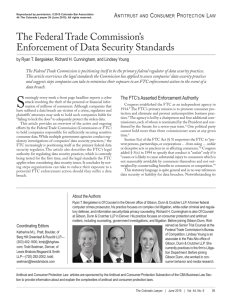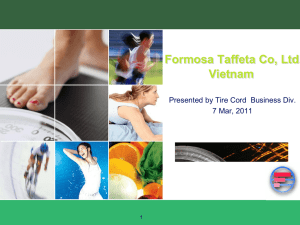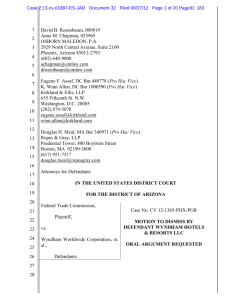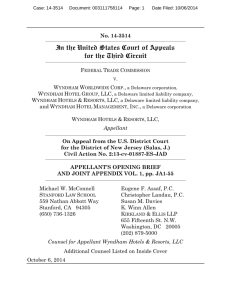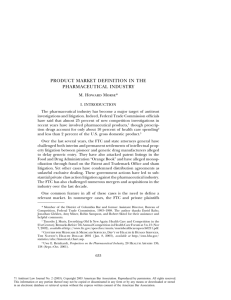Vicarious Liability in FTC Practice
advertisement
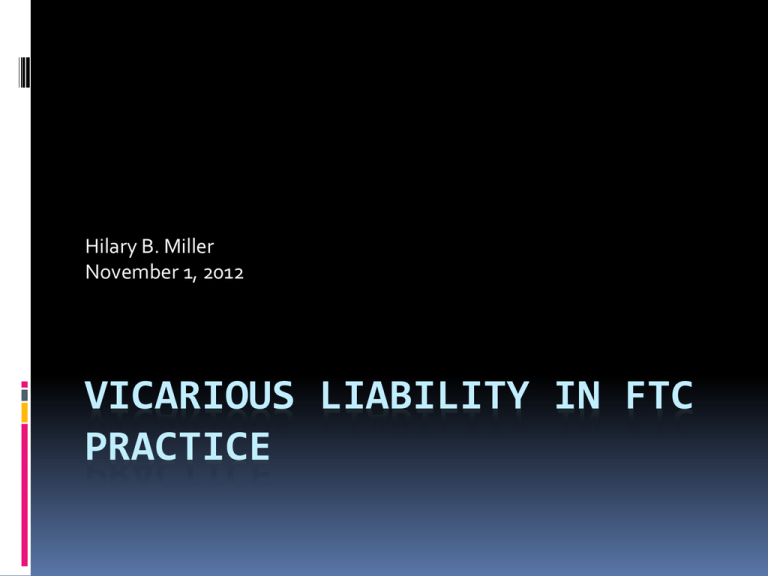
Hilary B. Miller November 1, 2012 VICARIOUS LIABILITY IN FTC PRACTICE Why does it matter? FTC and CFPB have concurrent enforcement authority over financial practices FTCA § 5 and D-F § 1031 are in pari materia FTC Has Various Theories For Holding Actors Vicariously Liable “Enterprise” liability “Control person” liability “Relief” defendants “Common Enterprise” liability Defendants that operate in a common enterprise may be held liable for one another's deceptive acts and practices. FTC v. Think Achievement Corp., 144 F.Supp.2d 993, 1011 (N.D. Ind. 2000) Defendants found to be a common enterprise are held jointly and severally liable for their violations. FTC v. J.K. Publications, Inc., 99 F. Supp.2d 1176, 1202 (C.D. Cal. 2000). Factors considered common control sharing of office space and officers business is transacted through "a maze of interrelated companies” commingling of corporate funds and failure to maintain separation of companies unified advertising any other evidence of no real distinction between the corporate defendants. Enterprise Liability A “common enterprise” exists when an enterprise transacts business through “a maze of interrelated companies,” i.e., when, as a whole, “the pattern or framework” of an enterprise indicates that the several companies are actually transacting the same or similar business. Delaware Watch v. FTC, 332 F.2d 745, 746 (2d Cir. 1964). Broad catch-all Inasmuch as no one factor is controlling, courts must consider "the pattern and framework of the whole enterprise . . . .” Delaware Watch Co., 332 F.2d at 746. “Control” liability A corporate officer or other employee can be held individually liable for company malfeasance Once corporate liability is established, the FTC must then generally demonstrate that “the individual defendants participated directly in the practices or acts or had the authority to control them.” FTC v. Amy Travel Svc., Inc., 875 F.2d at 573-574; FTC v. Transnet Wireless Corp., 506 F.Supp.2d 1247, 1270-71 (2007). “Control” factors Active involvement in business affairs and the making (direction, formulation, control, etc.) of corporate policy, including assuming the duties of a corporate officer. Not limited to respondeat superior Importantly, in a small closely-held corporation, an individual’s status as a corporate officer gives rise to a presumption of ability to control. FTC Operating Manual, Chapter Four Standard of liability The FTC is not required to prove that an individual defendant intended to deceive consumers. The individual must have “knowledge” of the unlawful conduct, but the “knowledge” may be satisfied by showing reckless indifference, or an awareness of a high probability of wrongfulness. FTC v. Amy Travel Svc., Inc., 875 F.2d at 574. Extent of liability Individual liability is truly joint and several – i.e., not limited to disgorgement of the benefit received by the individual FTC v. Windward Marketing, Ltd., 1997 WL 33642380, at 15 (September 30, 1997) “Relief” defendants Federal courts may order equitable relief against a ‘nominal’ or ‘relief’ defendant, an individual who is not accused of wrongdoing, where that person has: received ill-gotten funds; and does not have a legitimate claim to those funds. Targets: usually wives, but also lawyers, etc. FTC v. Transnet Wireless Corp., 506 F. Supp.2d at 1273 Summary Federal common law permits the imposition of vicarious liability on corporate officers, owners, control persons, affiliates and alter egos. Liability is joint and several, and not limited to disgorgement of benefits received Third parties may be “relieved” of ill-gotten gains, even if blameless CFPB will likely follow FTC precedent The End

